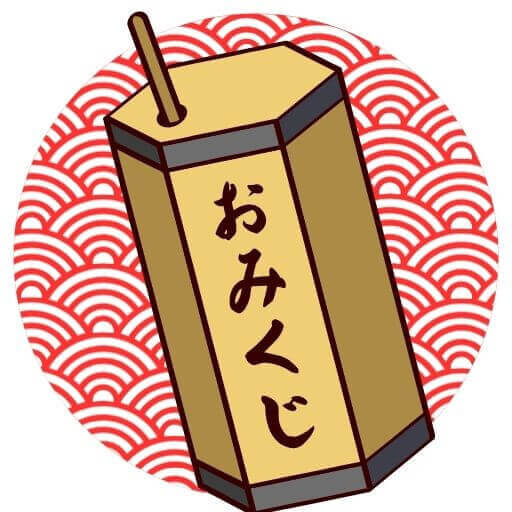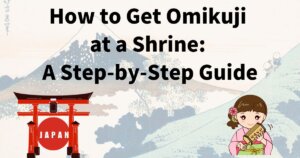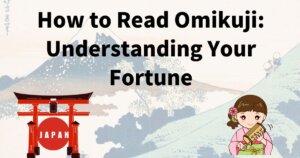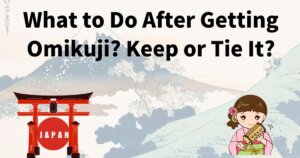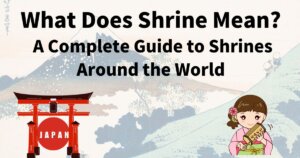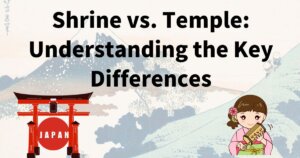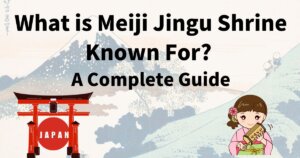📍 Wondering how to become a Buddhist monk in Japan?
Discover the training process, daily life, and temple discipline.
Learn how Omikuji reflects Buddhist teachings and wisdom.
Explore the connection between Buddhism and fortune slips.
The Path to Becoming a Buddhist Monk in Japan
(日本で僧侶になる方法とは?)
Becoming a Buddhist monk in Japan is a journey of discipline, devotion, and spiritual growth. Many temples follow strict training programs that have been passed down for centuries.
Who Can Become a Buddhist Monk?
In Japan, anyone—regardless of nationality—can become a monk if they are willing to undergo training and dedicate themselves to the teachings of Buddhism.
- Men and women can train to become monks.
- There are both full-time monks and lay practitioners.
- Some monks remain celibate, while others may marry.
Types of Buddhist Monks in Japan
There are different sects in Japanese Buddhism, and the roles of monks vary depending on the tradition.
- Zen Monks (禅僧) – Focus on meditation and mindfulness.
- Shingon & Tendai Monks (真言宗・天台宗) – Engage in esoteric Buddhist practices.
- Jodo & Nichiren Monks (浄土宗・日蓮宗) – Preach Buddhist teachings to the public.
Daily Life of a Buddhist Monk
A monk’s daily life is centered around spiritual practice, study, and temple duties.
- Early morning meditation and chanting.
- Temple maintenance and cleaning.
- Studying Buddhist scriptures.
- Guiding visitors and performing ceremonies.
The Role of Discipline and Mindfulness
Monks follow strict discipline, emphasizing mindfulness and self-control.
Challenges Faced by Buddhist Monks
- Physical and mental endurance during training.
- Adapting to a simple and minimalistic lifestyle.
- Commitment to lifelong learning and spiritual growth.
The Role of Omikuji in Buddhist Practices
(おみくじと仏教の関係)
How Omikuji Reflects Buddhist Teachings
Omikuji often contain messages that align with Buddhist philosophy, such as impermanence and karma.
Temples That Offer Omikuji
Some Buddhist temples, such as Sensoji in Tokyo, offer Omikuji that contain Buddhist wisdom instead of fortune predictions.
Omikuji as a Form of Self-Reflection
Many monks see Omikuji not as a prediction but as guidance for introspection and personal growth.
Can Monks Use Omikuji?
Yes, some monks use Omikuji as a teaching tool for their disciples and lay followers.
The Connection Between Omikuji and Buddhist Festivals
Many temples distribute special Omikuji during Buddhist festivals, reinforcing their spiritual significance.
Conclusion: The Journey of a Buddhist Monk and the Role of Omikuji
- Anyone can become a Buddhist monk in Japan with proper training.
- Different sects have different approaches to monastic life.
- Zen monks focus on meditation, while esoteric monks practice rituals.
- Monks follow a disciplined daily routine.
- Omikuji contains teachings related to Buddhist philosophy.
- Some temples use Omikuji as a tool for guidance.
- Omikuji encourages self-reflection and spiritual awareness.
- Monks may draw Omikuji for teaching purposes.
- Temple Omikuji often contain Buddhist wisdom rather than simple luck predictions.
- Becoming a monk requires dedication and perseverance.
- Buddhist training instills humility and compassion.
- The path of a monk is a lifelong commitment to spiritual growth.
